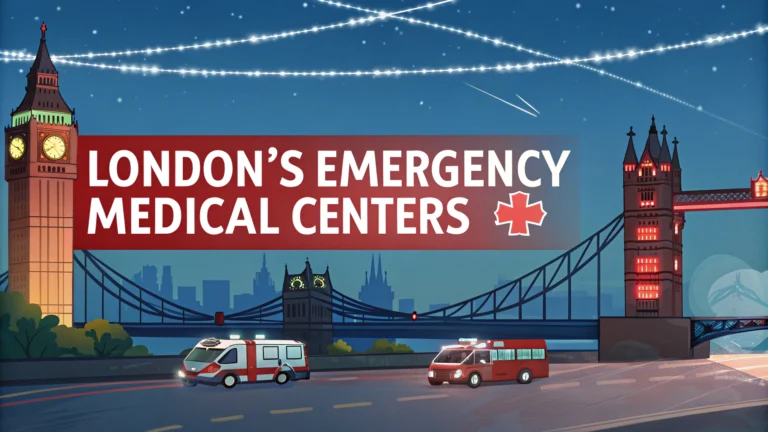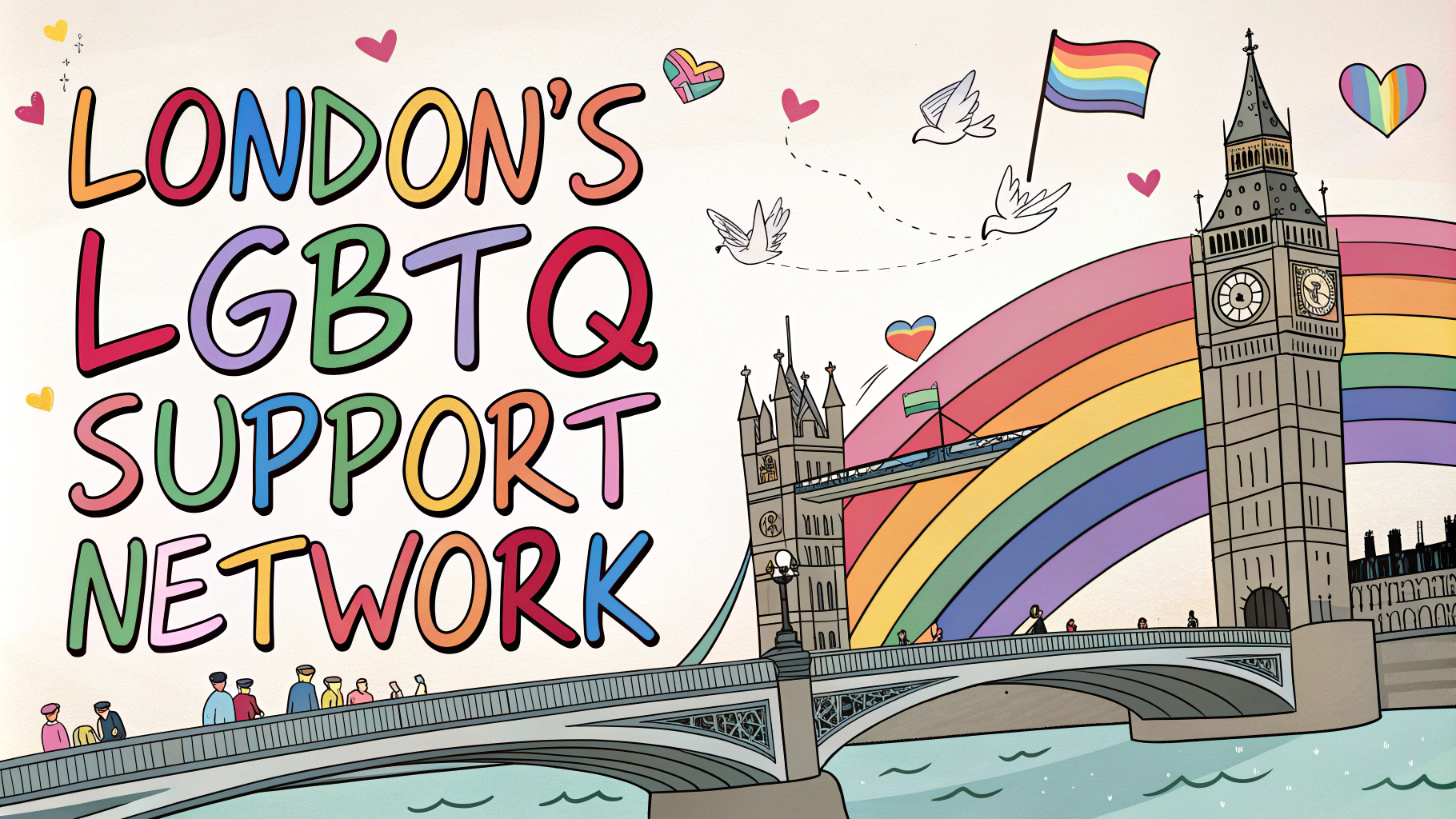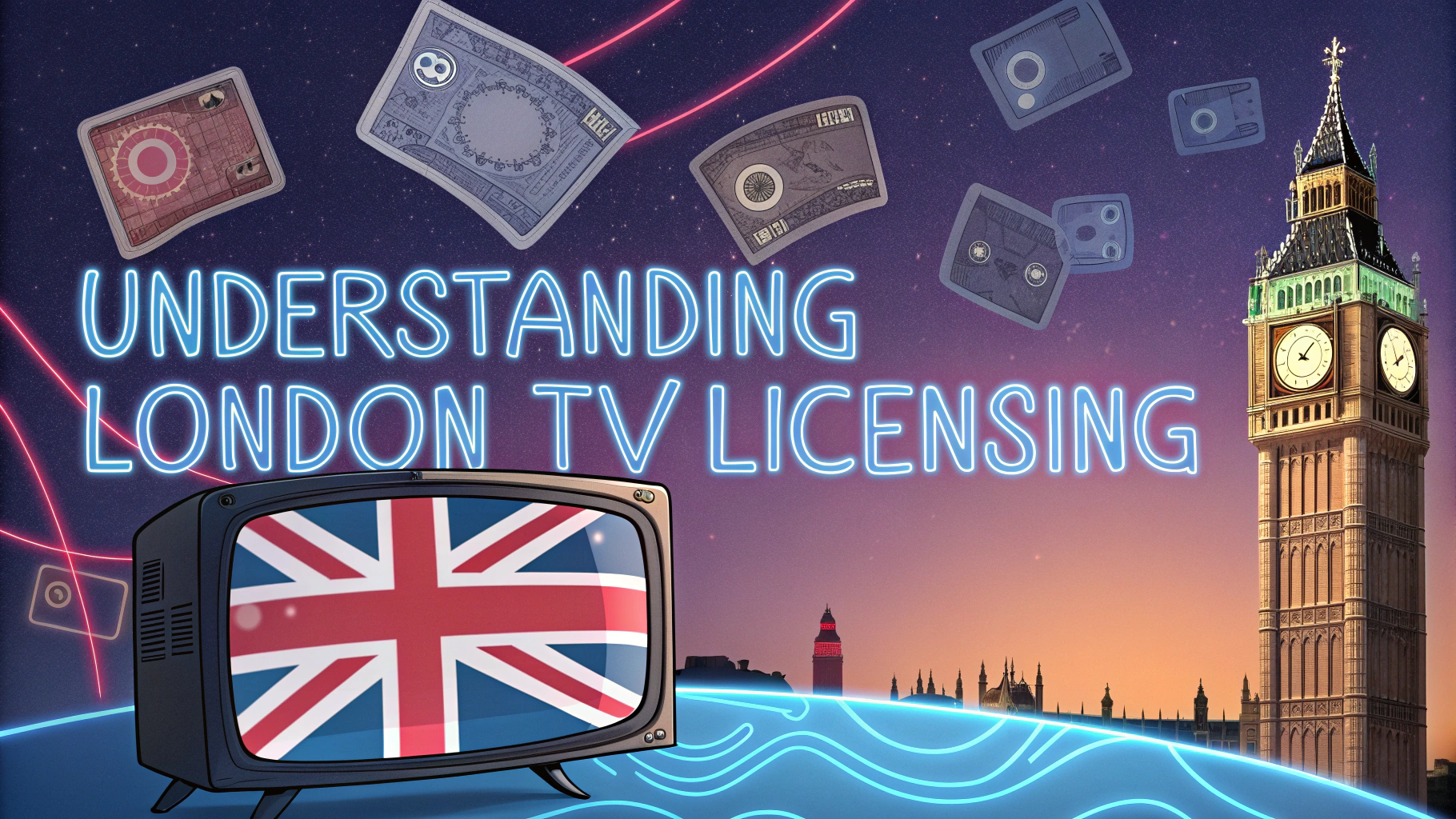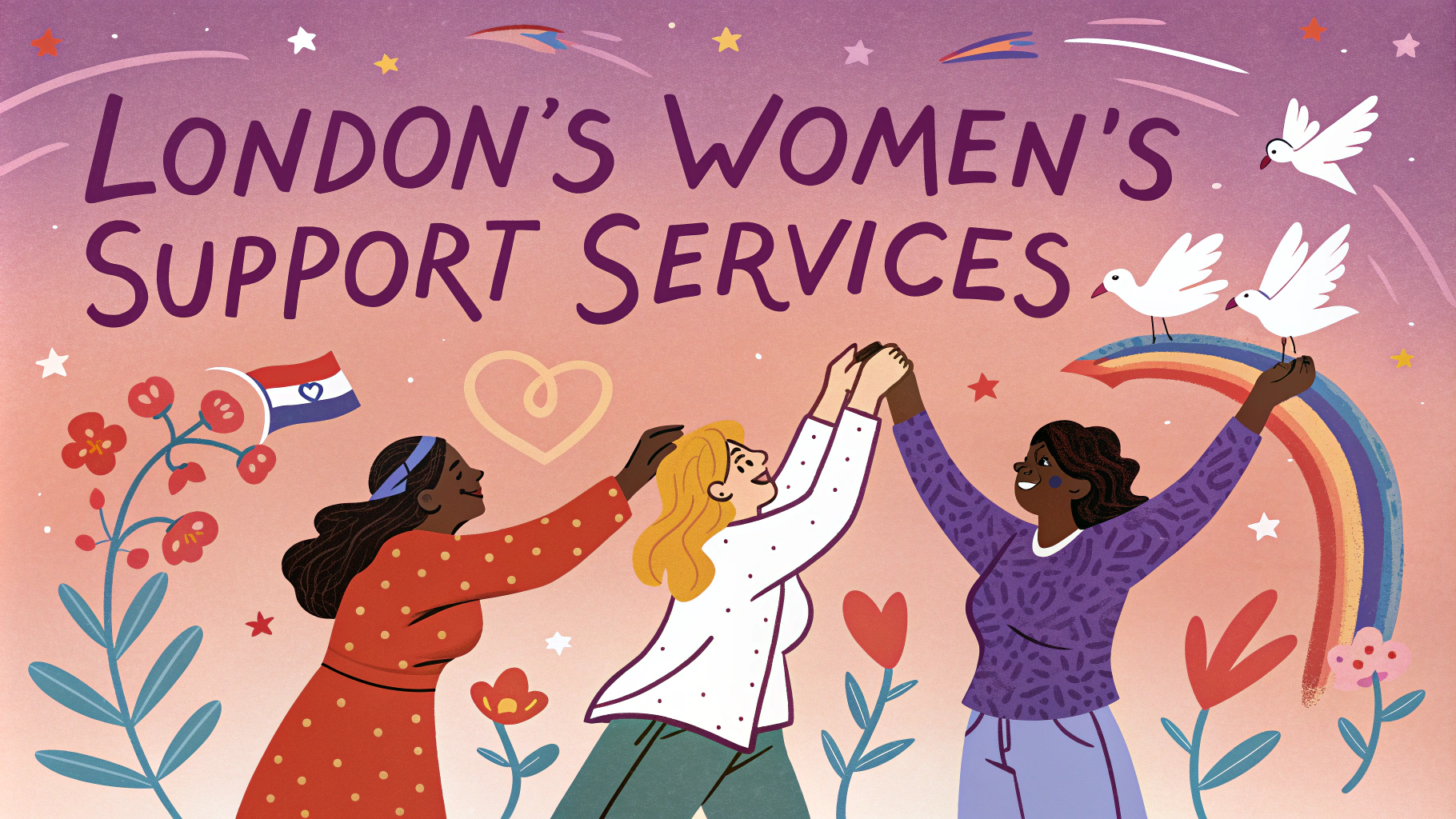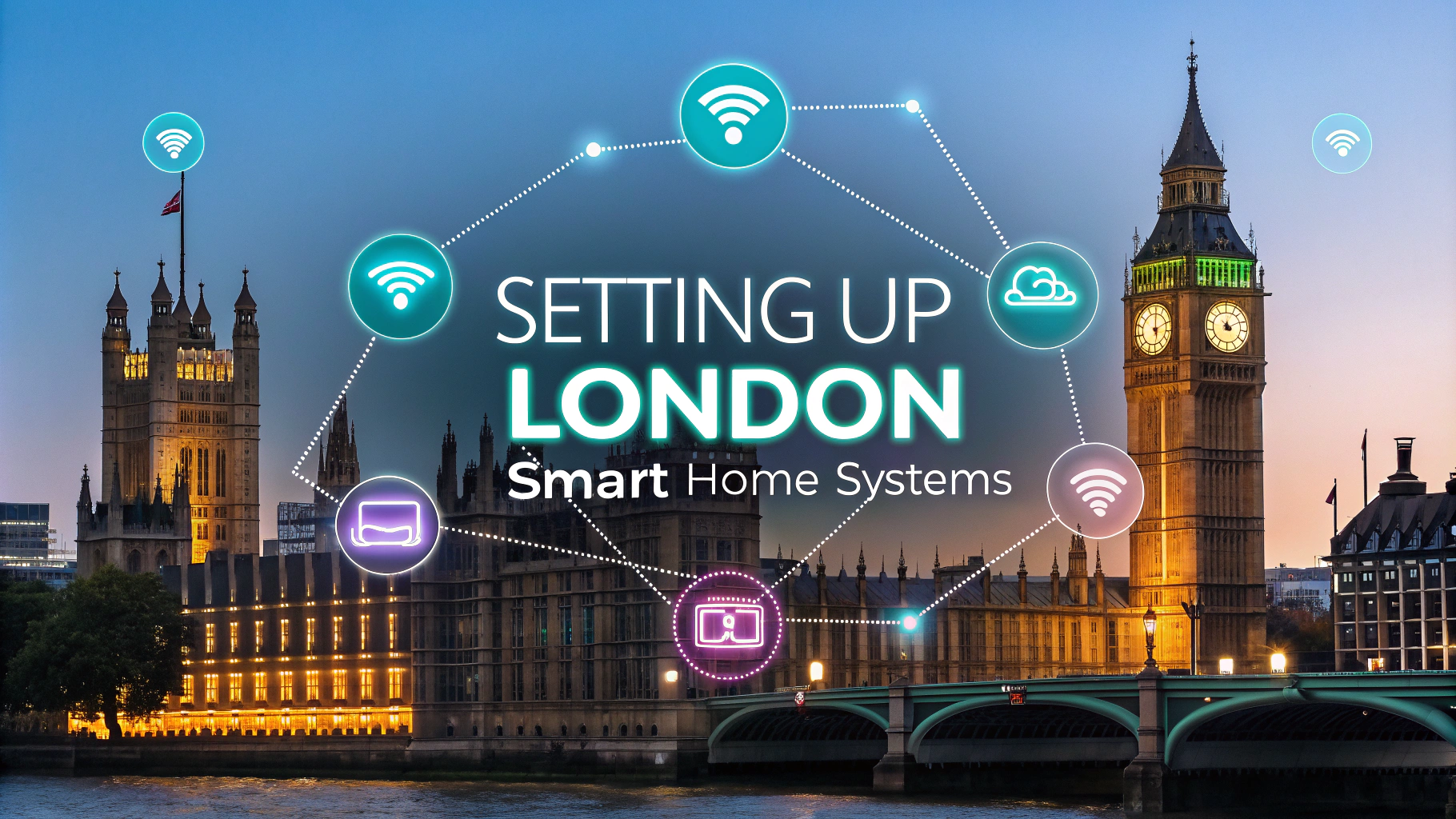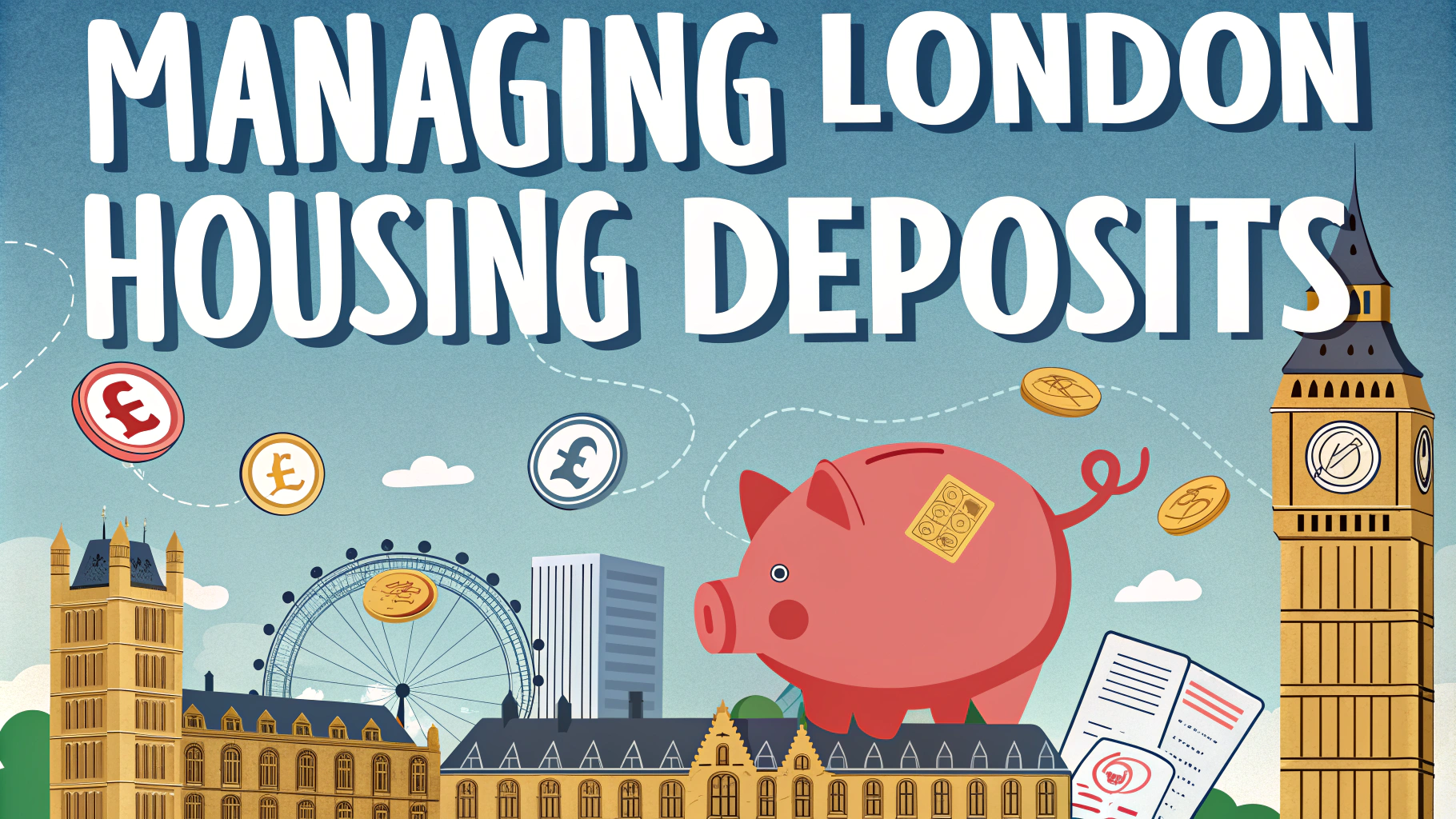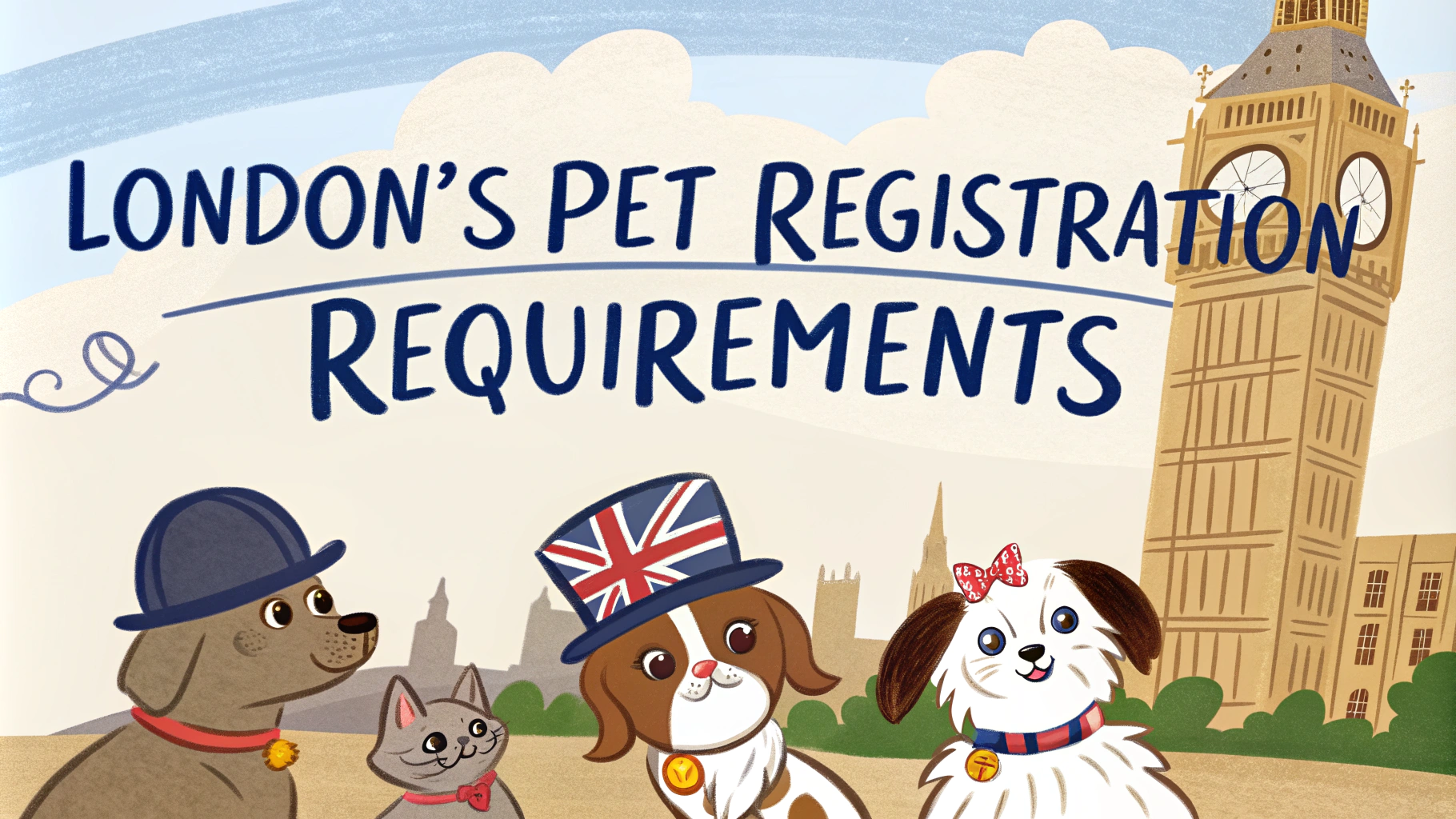London’s emergency medical centers provide critical healthcare services for residents and visitors who need immediate medical attention.
Understanding how to access emergency care in London can help you stay prepared for unexpected health situations and potentially save lives.
This guide covers the main emergency medical facilities in London, including hospitals with A&E departments, urgent care centers, and walk-in clinics.
Major Emergency Departments (A&E) in London
- St Thomas’ Hospital – Westminster Bridge Road, SE1 7EH | Tel: 020 7188 7188
- Royal London Hospital – Whitechapel Road, E1 1BB | Tel: 020 7377 7000
- St Mary’s Hospital – Praed Street, W2 1NY | Tel: 020 3312 6666
- University College Hospital – 235 Euston Road, NW1 2BU | Tel: 020 3456 7890
- King’s College Hospital – Denmark Hill, SE5 9RS | Tel: 020 3299 9000
Urgent Care Centers
Urgent care centers offer treatment for non-life-threatening conditions when you can’t see your GP.
- Soho NHS Walk-in Centre – 1 Frith Street, W1D 3HZ | Open 8am-8pm
- Parsons Green NHS Walk-in Centre – 5-7 Parsons Green, SW6 4UL | Open 8am-8pm
- Guys Hospital Urgent Care – Great Maze Pond, SE1 9RT | Open 24/7
When to Use Each Service
| Service | When to Use |
|---|---|
| A&E | Life-threatening emergencies, severe injuries, chest pain, stroke symptoms |
| Urgent Care | Minor injuries, infections, sprains, minor cuts needing stitches |
| Walk-in Clinic | Non-emergency care, prescriptions, minor illnesses |
Emergency Numbers and Services
- Emergency Services: 999 or 112
- NHS Non-emergency: 111
- NHS Direct: 0845 46 47
Private Emergency Care Options
- London Bridge Hospital – 27 Tooley Street, SE1 2PR | Tel: 020 7407 3100
- The Portland Hospital – 205-209 Great Portland Street, W1W 5AH | Tel: 020 7580 4400
- The Cromwell Hospital – 164-178 Cromwell Road, SW5 0TU | Tel: 020 7460 2000
Preparing for Medical Emergencies
- Save emergency numbers in your phone
- Keep a list of current medications and allergies
- Know your nearest A&E department
- Download the NHS App for quick access to medical services
- Keep basic first aid supplies at home
Getting Help During Your Stay in London
Register with a local GP as soon as possible after moving to London.
Keep your European Health Insurance Card (EHIC) or Global Health Insurance Card (GHIC) with you if you’re visiting from abroad.
Consider getting travel insurance that covers medical emergencies if you’re visiting London.
Medical Emergency Resources
Language Support Services
Many London hospitals provide translation and interpreter services for non-English speakers. Contact the hospital in advance when possible to arrange these services.
- 24/7 telephone interpretation available at major hospitals
- Face-to-face interpreters for planned appointments
- Multi-language information leaflets
- Sign language services for deaf patients
Transportation to Emergency Facilities
Understanding your transport options during medical emergencies is crucial:
- London Ambulance Service for serious emergencies
- Licensed taxi services for non-critical situations
- Hospital shuttle services in some areas
- Patient Transport Service for eligible individuals
After-Hours Medical Care
Several facilities provide care outside regular hours:
- 24-hour pharmacies
- Out-of-hours GP services
- Night-time dental emergencies
- Mental health crisis lines
Staying Safe and Prepared in London
Being prepared for medical emergencies ensures quick access to appropriate care when needed. Keep important documents readily available, maintain emergency contacts, and familiarize yourself with local healthcare services before they’re needed.
Remember that London’s healthcare system is designed to provide comprehensive emergency care to anyone who needs it, regardless of their residency status or nationality.
For the latest updates on emergency medical services in London, visit the NHS website or contact your local council’s health services department.
FAQs
- Where are the major Accident & Emergency (A&E) departments in London?
Major A&E departments are located at St. Thomas’ Hospital, St. Mary’s Hospital, King’s College Hospital, Royal London Hospital, St. George’s Hospital, and University College Hospital. - What’s the difference between an Urgent Care Centre and an A&E in London?
Urgent Care Centres treat minor injuries and illnesses, while A&E departments handle life-threatening emergencies. Urgent Care Centres typically have shorter wait times and are appropriate for sprains, minor cuts, and non-emergency conditions. - How quickly can I expect emergency services to respond in London?
London Ambulance Service aims to reach life-threatening emergencies (Category 1) within 7 minutes. For other emergencies, response times vary from 18 minutes to several hours, depending on severity. - Do I need to register with local emergency services when moving to London?
No registration is required for emergency services, but you should register with a local GP (General Practitioner) as soon as possible after moving to London. - What’s the emergency number to call in London?
Call 999 for immediate emergencies or 111 for non-emergency medical advice. Both services are available 24/7. - Are emergency medical services free in London?
Emergency care through the NHS is free for all UK residents. However, overseas visitors may be charged for some services unless they have appropriate travel insurance or are from countries with reciprocal healthcare agreements. - Which London hospitals have specialized trauma centers?
London has four major trauma centers: The Royal London Hospital, St George’s Hospital, King’s College Hospital, and St Mary’s Hospital. These centers provide specialized care for severe injuries. - How do I find the nearest emergency medical center to my new London home?
Use the NHS website’s service finder tool, download the NHS App, or call 111 to locate your nearest emergency medical center. You can also ask your local council or GP for this information. - What documents should I bring to an emergency medical center in London?
Bring photo ID, proof of address, NHS number (if you have one), and any relevant medical records or current medication lists. For non-UK residents, bring travel insurance documents. - Are there private emergency medical centers in London?
Yes, London has private emergency facilities including those at London Bridge Hospital, The Portland Hospital, and The Cromwell Hospital, but these require payment or private health insurance.
